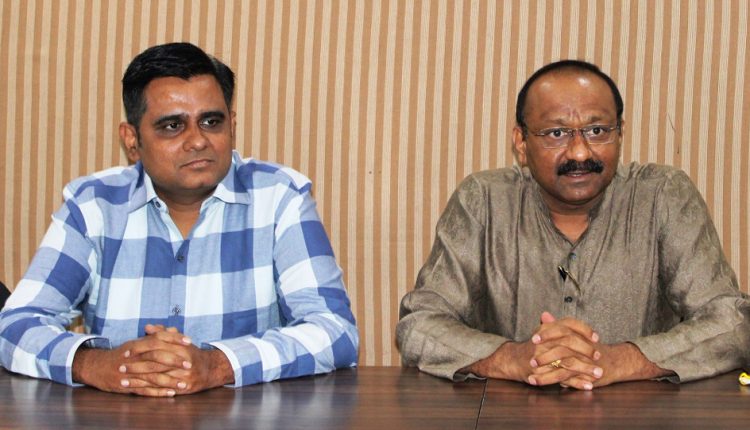Ayurvedic Therapy is effective on Prostate Cancer
Internationally admired research led by Dr. Yogesh Bendale from Pune
Pune (P&V News Service) : Inspired by the basic principles of Ayurveda, a team of scientists from Pune has discovered a possible therapy for invasive prostate cancer. Research has shown that this therapy is effective.
Rasayani Biologics Pvt. Ltd. The research, conducted in RBPL’s research lab, has been adapted for presentation at the European Multidisciplinary Urological Congress (EMUC) 2021, a leading international forum, said Dr. Yogesh Bendale in a press conference.
According to RBPL research, Ayurveda has great potential to meet the medical needs of patients with serious illnesses like cancer. But to make it more useful to the people and at the same time globally acceptable, it is very important to carry out scientific research studies and establish a high level of evidence for such treatments. This state-of-the-art research facility has been developed for this purpose. RBPL is accredited by the Department of Scientific and Industrial Research, Government of India. The aim of treating chronic and serious illnesses is to conduct scientific research studies and provide safe, effective, and easily administered solutions based on evidence. The combination of research and traditional knowledge of Ayurveda transforms the best therapeutic results to improve the lives of cancer patients. RBPL always aims to present the world’s scientific body in the most reliable and contemporary scientific language to show the tangible results achieved by Ayurveda, said Dr. Bendale.
Dr. Yogesh Bendale said, “Prostate cancer is the most common cancer and the second leading cause of cancer death in men. Treatment of prostate cancer is associated with many challenges and controversies. It is necessary to identify the exact stage of the disease and give treatment. Castration-resistant prostate cancer (CRPC) has a worse prognosis, impaired quality of life, and shorter survival than other prostate cancers. This compound has already been tested in systematic clinical trials on cancer patients. Clinical trials have shown that the drug is good and safe.”
“These patients need to be monitored for toxic side effects over conventional chemotherapy. All these factors indirectly increase the cost of treatment. The drug can be given orally, resulting in it being readily available with reduced costs. This can be of great help to patients in developing countries and third world countries where specialized healthcare is not available in remote areas. This new drug development program is based on the basic principles of Ayurveda. RBPL is dedicated to creating scientific evidence for Ayurveda. More and more scientifically certified drugs will be manufactured under ‘Make in India’. In the situation of cancer in India, the needs of Indian cancer patients are different from their Western counterparts. Indian scientists should work for the development of new drugs that will help our cancer patients,” he added.
Research findings:
– The compound inhibits prostate cancer cells to the same extent as conventional chemotherapeutic agents
– Prostate cancer shows resistance to castration (surgery)
– Great potential to improve outcomes in prostate cancer patients
– Selectively found to be toxic to cancer cells
-Effective and safer than available chemotherapy drugs
– The drug is well tolerated and safe
– The drug can be given orally, resulting in it being readily available to patients even in remote areas
– Low cost, no hospitalization required
The following is the team of researchers:
Dr. Ulhas Wagh, Dr. Padma Shastri and Dr. Kalpana Joshi (Mumbai) under the guidance of senior scientists in drug development. The research was led by Yogesh Bendale. Dr. Radha Pujari, Nandini Khot, Suren Nagre and Dr. Avinash Kadam was among them. RBPL is a leading research institute conducting scientific research in Ayurveda oncology and presenting its findings at reputed international scientific forums of traditional oncology.
“The results of a study on PC3 cell lines to find out the effect of this therapy on prostate cancer are encouraging. The drug can be given orally. It may be readily available to patients in remote areas where there are no specialized cancer hospitals.”
– Dr. Yogesh Bendale, Rasayu Cancer Clinic.

